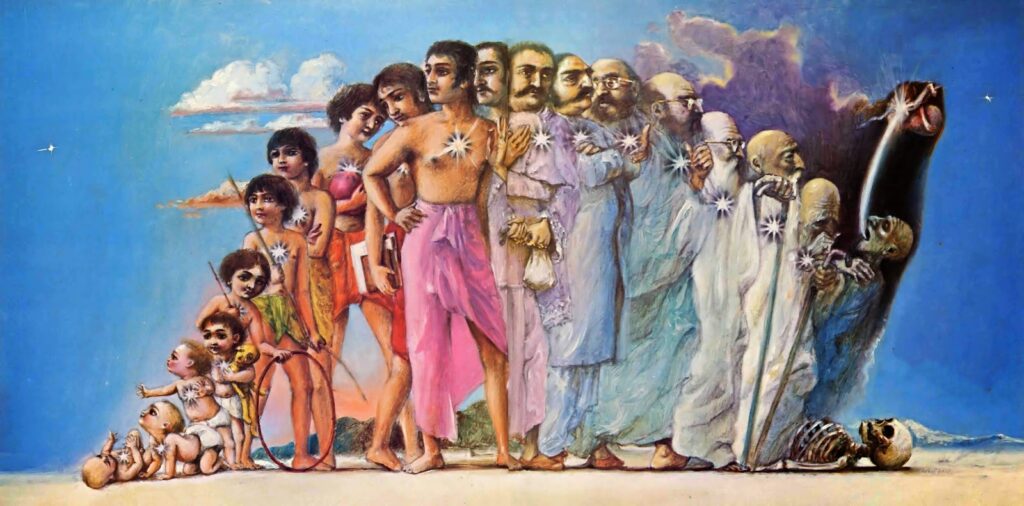
Reincarnation refers to the taking on of a new material body after one’s present body has died. (Carnal: flesh and blood). The doctrine of reincarnation is taught in great detail in the Vedas, but it was also referred to by Jesus Christ, and accepted by prominent Church Fathers such as Origen, Justin Martyr, St Gregory, the Bishop of Nyssa, and St Jerome during the first 500 years of the Christian Church. It also forms part of Buddhist teaching.
According to Vedic teachings, a materially conditioned soul reincarnates somewhere in the material world for three primary reasons – he still has material desires and therefore needs another physical body to fulfil those desires, he has good or bad karma owing [usually a mixture of both] and he has material attachments, perhaps to another soul, or a place etc. Usually, all three of these causes of reincarnation will come into play, forcing the materially conditioned soul to take birth again. Reincarnation is seen as being undesirable because it leads to repeated birth, disease, old age and death in the material sphere, keeping us away from our true home – with the Supreme Soul in the spiritual world.
Reincarnation was (supposedly) rejected as a Christian doctrine after the interference of the Emperor Justinian at the Synod of Constantinople in 553 A.D. After this time, reincarnation was replaced by the doctrine that we have only one life on earth in which to attain perfection, after which we either attain salvation or burn in hell forever. That God would create souls simply to condemn the vast majority of them to burn in hell forever is unthinkable. This is a flaw in modern Christian theology, portraying God as being cruel, vengeful and unloving. What father could condemn any of his children to eternal suffering. And God is the most loving of all fathers.

The Vedic scriptures contain very detailed descriptions of the workings of reincarnation. A small sample of these verses follows:
For one who is born, death is certain. And for one who dies, birth is certain.
[Bhagavad gita 2:27]
As a person puts on new garments, giving up the old ones, similarly, the self accepts new material bodies, giving up the old and useless ones.
[Bhagavad gita 2:22]
As the embodied self continually passes, in this body, from boyhood to youth to old age, the self similarly passes into another body at death. A person who has realised his spiritual identity is not bewildered by such a change.
[Bhagavad gita 2:13]
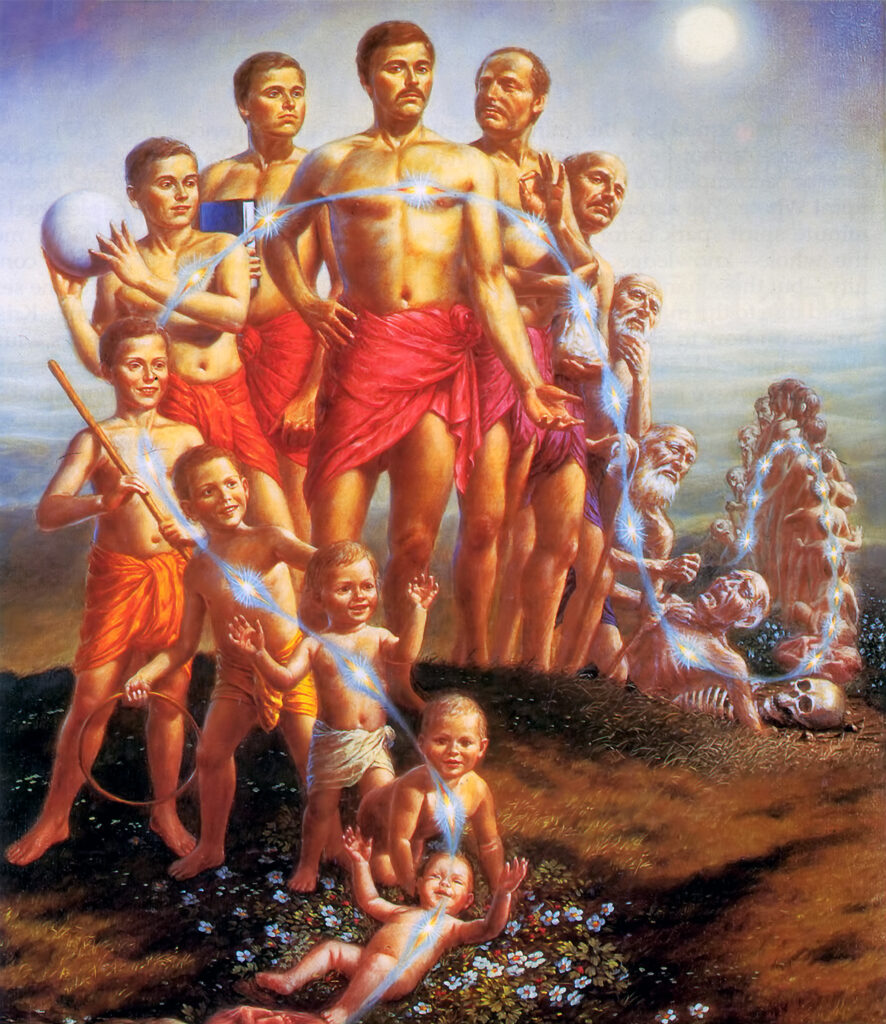
By virtue of the processes of the subtle body (mind), the living entity develops and gives up gross (material) bodies. This is known as the transmigration of the self. Thus the self becomes subjected to different types of so-called enjoyment, lamentation, fear, happiness and unhappiness.
[Srimad Bhagavatam 4:29:75]
Reincarnation and Christianity
Though we only have a small amount of Jesus’ teachings in the New Testament, there are a number of references to reincarnation which are largely ignored by most Christian churches. And there are also references to reincarnation in the Old Testament:
Return to the Womb
Naked I came from my mother’s womb, and naked I shall return there.
[Job 1:21]
Jeremiah Existed Prior to this Body
The word of the Lord came to me, saying, ‘Before I formed you in the womb I knew you, before you were born I set you apart; I appointed you as a prophet to the nations.’
[Jeremiah 1: 4-5]
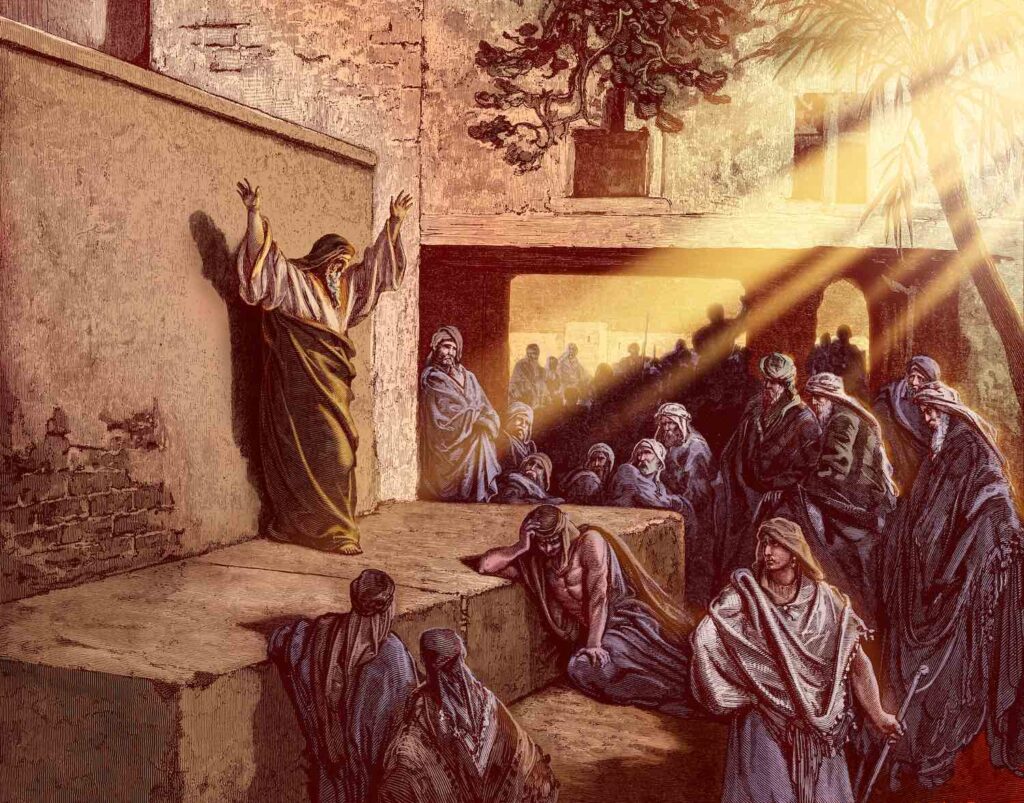
Jeremiah
Levi in the Body of his Ancestor
… when Melchizedek met Abraham, Levi was still in the body of his ancestor.
[Hebrews 7:10]
Solomon Came into a Body Undefiled
(King Solomon speaks:) Now I was a child good by nature and a good soul fell to my lot. Nay, rather, being good, I came into a body undefiled.
[The Wisdom of Solomon: 8:19-20]
This verse appears in the “Apocrypha” (Greek – “hidden away”). The Apocrypha consists of fourteen books found in the Greek and Old Latin Bible but not in the earlier Hebrew canon. Seven of these books are considered canonical (authoritative, accepted as bona fide scripture) by the Roman Catholics today and form part of their Old Testament (including “The Wisdom of Solomon”).
[Dictionary of the Bible, (Rev.1963) Grant and Rowley: p.39-40]

King Solomon
John The Baptist Was Formerly Elijah (Elias)
As John’s disciples were leaving, Jesus began to speak to the crowd about John (the Baptist): “What did you go out into the desert to see? … A prophet? Yes, I tell you and more than a prophet. This is the one about whom it is written: ‘I will send my messenger ahead of you, who will prepare your way before you.’ I tell you the truth: Among those born of woman there has not risen anyone greater than John the Baptist … And if you are willing to accept, he is the Elijah who was to come.”
[Mathew 11:7, 9, 10, 11, 14]

The disciples asked him, “Why then do the teachers of the law say that Elijah must come first?” Jesus replied, “To be sure, Elijah comes and will restore all things. But I tell you, Elijah has already come, and they did not recognize him, but have done to him everything they have wished. In the same way the Son of Man (Jesus) is going to suffer at their hands.” Then the disciples understood that he was talking to them about John the Baptist.
[Mathew 17:10-13. Also Mark 9:11-13]
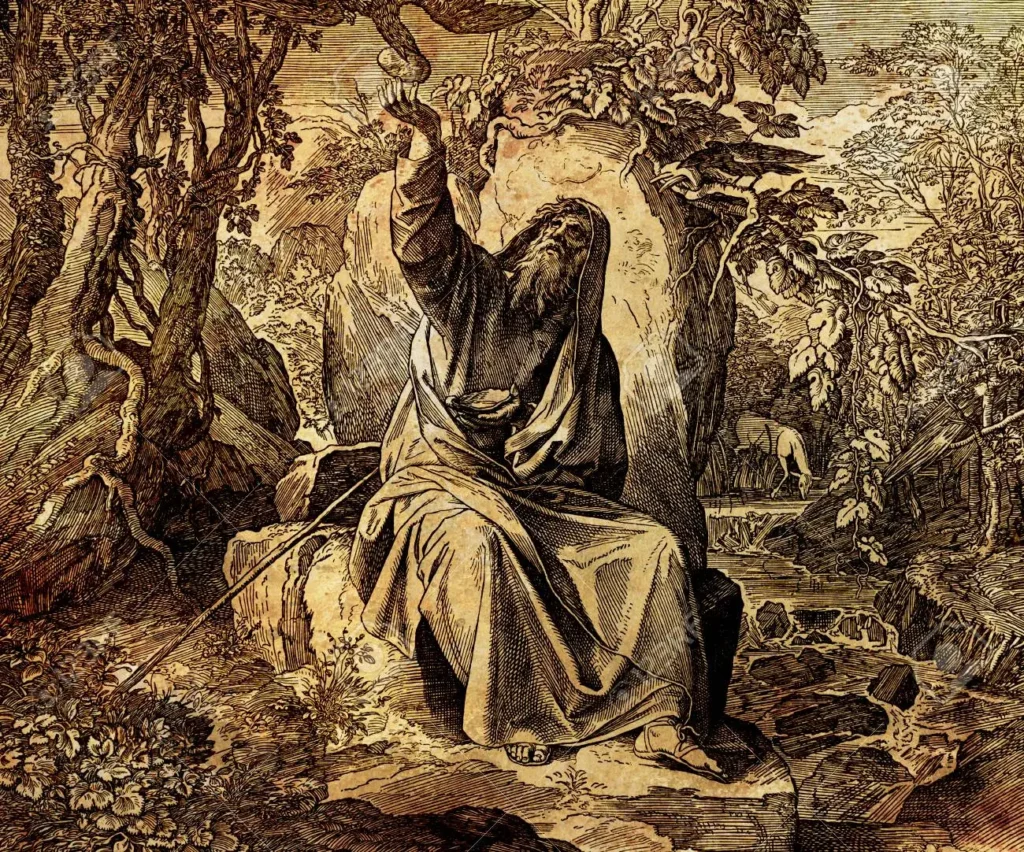
Elijah
Who do the crowds say I am?
Once when Jesus was praying in private and his disciples were with him, he asked them, “Who do the crowds say I am?” They replied, “Some say John the Baptist; others say Elijah; and still others, that one of the prophets of long ago has come back to life.”
[Luke 9:18-19]
This showed the general belief in reincarnation amongst the people of the day.
The Story of the Blind Man
As he went along, he saw a man blind from birth. His disciples asked him, “Rabbi, who sinned, this man or his parents, that he was born blind?”
This shows that the disciples accepted both reincarnation and karma: they were asking if it was this man’s previous activities, prior to being born, which resulted in his blindness. Jesus taught “as you sow, so shall you reap.” Being born blind was a bitter fruit being reaped by this man, and therefore to sow the seeds of this reaction the disciples assumed he must have existed prior to the birth of this body. And Jesus did not deny that ordinarily a man’s being born blind was a result of his (or his parents) past sins. If he didn’t accept reincarnation he could have said so then and there. Instead, he simply said:
“Neither this man nor his parents sinned,” said Jesus, “but this happened so that the work of God might be displayed in his life.”
[John 9:1-2]
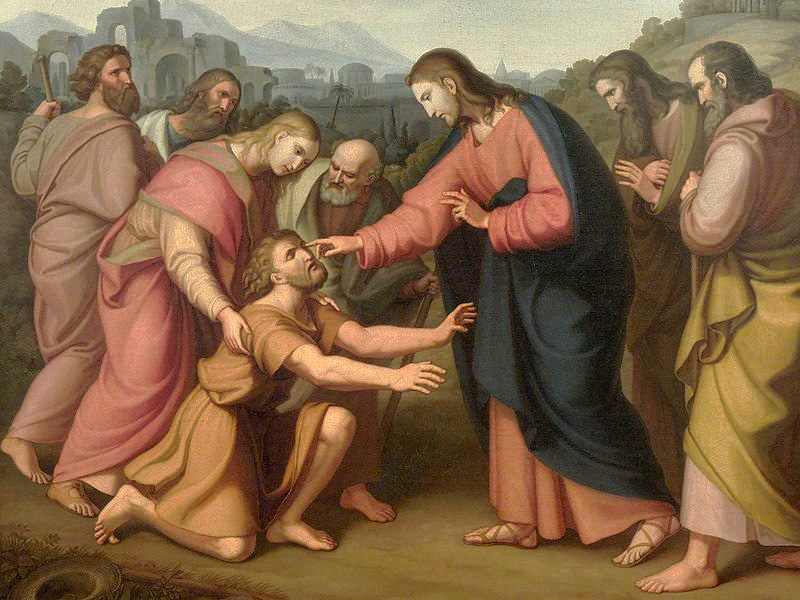
A Better Country
All these people were still living by faith when they died. They did not receive the things promised; they only saw them and welcomed them from a distance. And they admitted that they were aliens and strangers on earth. People who say such things show that they are looking for a country of their own. If they had been thinking of the country they had left, they would have had the opportunity to return. Instead they were longing for a better country – a heavenly one. Therefore God is not ashamed to be called their God, for He has prepared a city for them.
[Hebrews 11:13-16]

Karma
The Sanskrit word karma refers to actions performed in order to get some fruit or reward [“fruitive activities”], as well as the resultant reactions to those actions. The Vedic scriptures teach that as long as we are acting in material consciousness – desiring a result for ourselves – we have to reap the reactions to our activities. In the Bhagavad-gita it is stated:
Nature is said to be the cause of all material activities and effects, whereas the living entity is the cause of the various sufferings and enjoyments in this world.
[Bhagavad-gita 13:21]
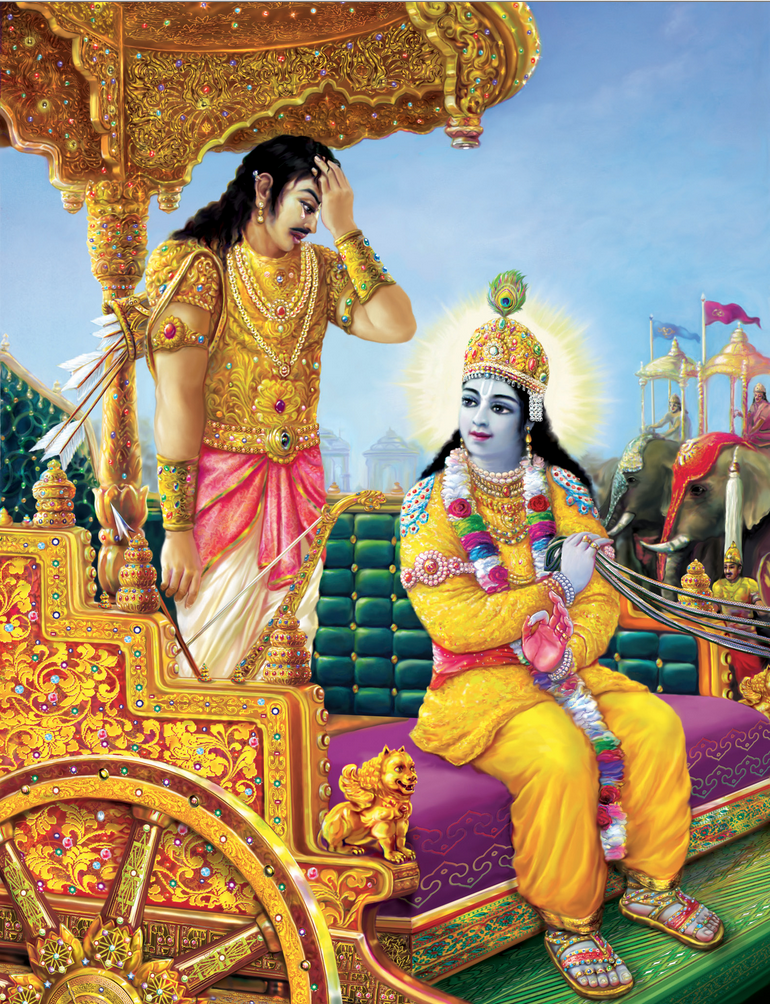
We cannot blame God or anyone else for our suffering. We have sown the seeds for our own suffering by our past misdeeds, in this and previous lifetimes. Similarly, our past pious activities allow us to enjoy good results. Nothing happens unfairly or by accident. Everything is perfectly arranged. Good actions create “good karma,” while bad actions create “bad karma.”
Nor does the Supreme Spirit assume (take responsibility for) anyone’s sinful or pious activities. Embodied beings, however, are bewildered because of the ignorance which covers their real knowledge.
[Bhagavad gita 5:15]
In the purport to this verse, Srila Bhaktivedanta Swami states:
… He (the Supreme Lord) does not create a particular situation for any living entity, but the living entity, bewildered by ignorance, desires to be put into certain conditions of life, and thereby his chain of action and reaction begins … Because he is a living soul, he has the capacity to desire by his free will. Such desire is fulfilled only by the omnipotent Lord. And so, when the living entity is bewildered in his desires, the Lord allows him to fulfil those desires, but the Lord is never responsible for the actions and reactions of the particular situation which may be desired …
According to the Vedas, “good” and “bad” karma must both be considered undesirable, in that they both force one to return to the material world in order to experience their reactions, thus binding us to the wheel of birth and death. On the other hand, work performed for the pleasure of God, called karma-yoga or bhakti-yoga, is akarma, that is, it does not create karmic reaction, but is actually liberating:
Deluded by ignorance, the living entity wanders in the forest of this material world, enjoying the happiness and distress resulting from his past deeds, everywhere and at all times. …
[Srimad Bhagavatam 6:17:18]
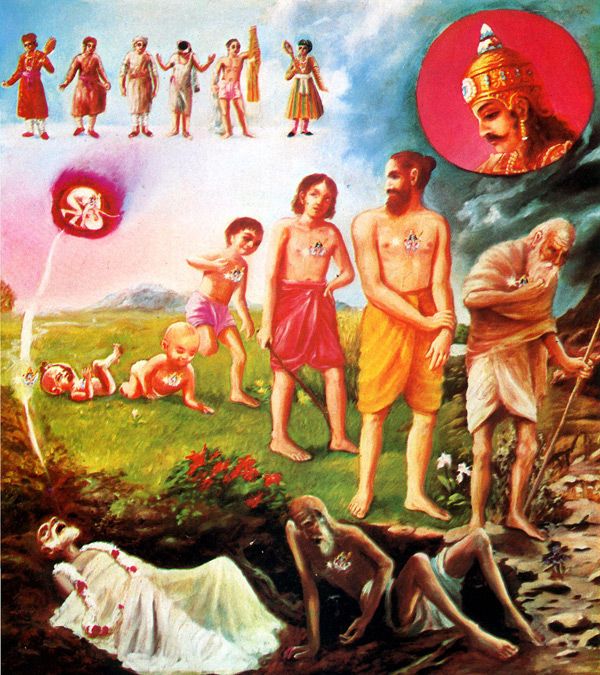
Only in the Vedic tradition do we find a complete understanding of the intricacies of action and reaction. So long as the living being acts independently of God, he is bound by karma to the wheel of birth and death. Because he is acting for himself, he is held responsible for the reactions to his actions. Because he is acting on the material platform, the reaction to whatever he does will be material. He therefore needs a material body to experience it with.
The results of whatever a living entity does in this life are enjoyed in the next. The expert knowers of the Vedic conclusions say that one enjoys or suffers the results of his past activities. But practically it is seen that the body that performed the work in the last birth is already lost. So how is it possible to enjoy or suffer the reactions of that work in a different body? … After the gross body is lost, the subtle body is still there to enjoy or suffer. Thus there is no change.
[Srimad Bhagavatam 4:29:58-60]
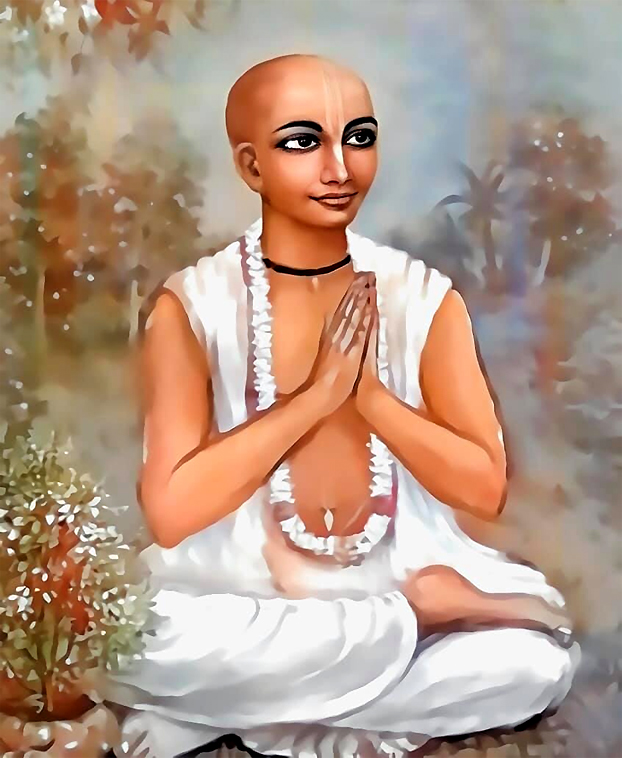
A man engaged in devotional service rids himself of good and bad karma even in this life. Therefore strive for yoga, O Arjuna, which is the art of all work.
[Bhagavad gita 2:50]
The steadily devoted soul attains unadulterated peace because he offers the result of all activities to Me; whereas a person who is not in union with the Divine, who is greedy for the fruits of his labour, becomes entangled.
[Bhagavad gita 5:12]

A man reaps what he sows. The one who sows to please his sinful nature, from that nature will reap destruction. The one who sows to please the Spirit, (karma-yoga/bhakti-yoga) from the Spirit will reap eternal life.
[New Testament: Galatians 6:7-8]

Understanding that karma binds a person to the wheel of birth and death, how does a person purify his desires and become freed from karmic reaction? The best method of purification, glorified in the various scriptures of the world, and taught by great teachers such as Lord Chaitanya and Lord Jesus Christ, is the chanting of the holy names of the Lord. This chanting process purifies a person’s heart and mind and awakens the original dormant love for God which is buried beneath layers of material conditioning.
Help us, O God of our salvation, for the glory of Thy name, and deliver us and purge away our sins, for Thy name’s sake!
[Psalms 79:9]
And it shall come to pass that whosoever shall call upon the Name of the Lord shall be saved.
[Joel 2:32 and Acts 2:21]

I will declare Your Name to my brothers. In the presence of the congregation I will sing Your praise.
[Psalm 22:23 and Hebrews 2:11-12]
Just prior to his crucifixion, Jesus prayed to his Father – Krishna – saying that it was his Father’s name that would protect his disciples and enable them to experience yoga or oneness with the Supreme Father. Jesus said:
I will remain in the world no longer, but they are still in the world, and I am coming to You. Holy Father, protect them by the power of Your name – the name You gave me – so that they may be one as we are one. While I was with them, I protected them and kept them safe by that name you gave me.
[John 17:11-12]

In the Vedic scriptures there are innumerable verses glorifying the spiritual potency of chanting the Lord’s holy names.
Simply by chanting one holy name of Hari, a sinful man can counteract the reactions to more sins than he is able to commit.
[Brhad-Vishnu Purana]
If one chants the holy name of the Lord, even in a helpless condition or without desiring to do so, all the reactions of his sinful life depart, just as when a lion roars, all the small animals flee in fear.
[Garuda Purana]
As a fire burns dry grass to ashes, so the holy name of the Lord, whether chanted knowingly or unknowingly, burns to ashes, without fail, all the reactions to one’s sinful activities.
[Srimad Bhagavatam 6:2:18]
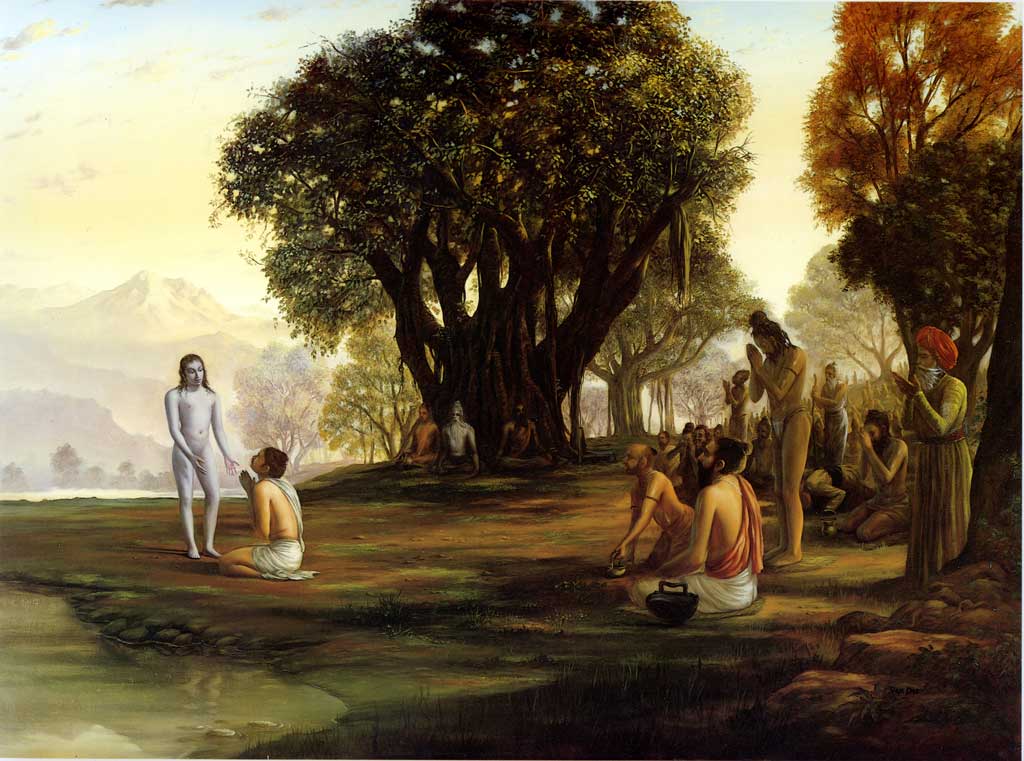
Sukadeva Goswami continued: My dear King, the chanting of the holy name of the Lord is able to uproot even the reactions of the greatest sins. Therefore the chanting of the sankirtan movement is the most auspicious activity in the entire universe. Please try to understand this so others will take it seriously.
[Srimad Bhagavatam 6:3:31]
The chanting process not only cleanses one of karmic reaction, but more importantly, it purifies our hearts and awakens spiritual love for the Supreme Soul and all living entities who are His children:
Anyone who is engaged in chanting My transcendental name must be considered to be always associating with Me. And I may tell you frankly that for such a devotee I become easily purchased.
[Krishna to Arjuna – Adi Purana]
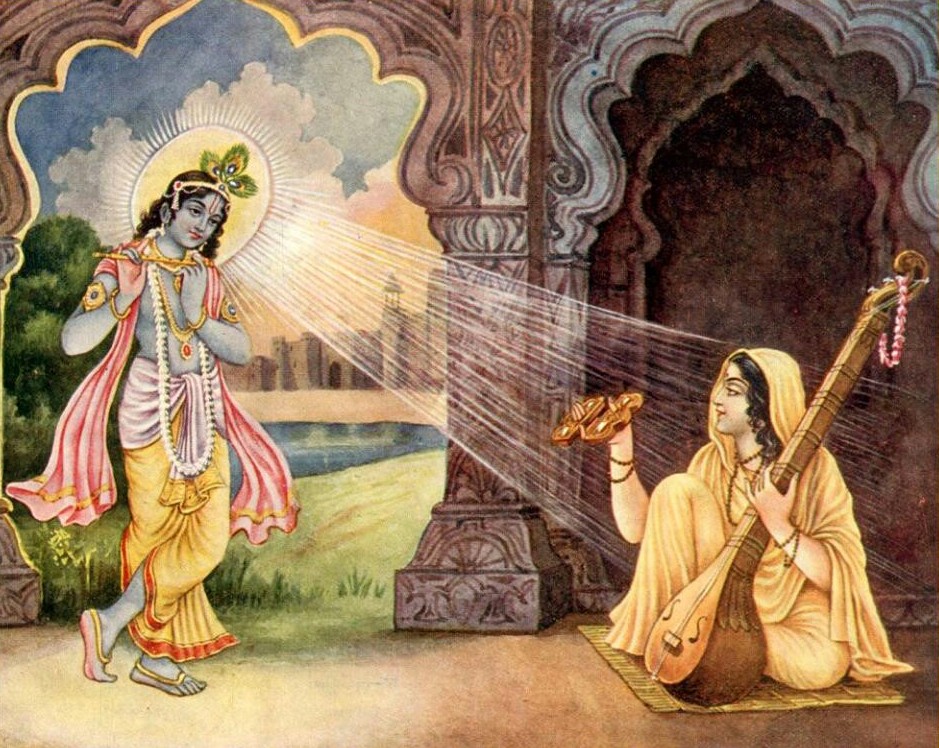
Mirabhai
All glories to the congregational chanting and singing of God’s names, which cleanses the heart of all the dust accumulated for years together, and extinguishes the fire of conditional life, of repeated birth and death. This congregational chanting of the names of God is the prime benediction for humanity at large because it spreads the rays of the benediction moon. It is the life of all transcendental knowledge. It increases the ocean of transcendental bliss, and it enables us to fully taste the nectar for which we are always anxious.
[Lord Chaitanya’s first prayer]
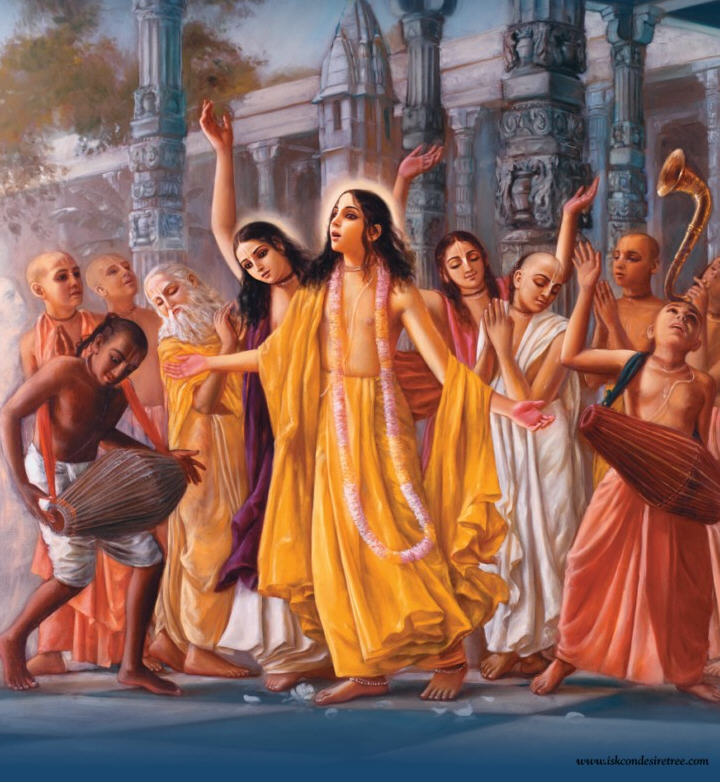
By this chanting process we become re-established in our original loving relationship with the Supreme Soul and return to the spiritual world, thus ending the repetition of birth and death in the material world:
After attaining Me, the great souls, who are yogis in devotion, never return to this temporary world, which is full of miseries, because they have attained the highest perfection. From the highest planet in the material world down to the lowest, all are places of misery wherein repeated birth and death take place. But one who attains to My abode, O son of Kunti, never takes birth again.
[Bhagavad-gita 8:15-16]



Leave A Reply